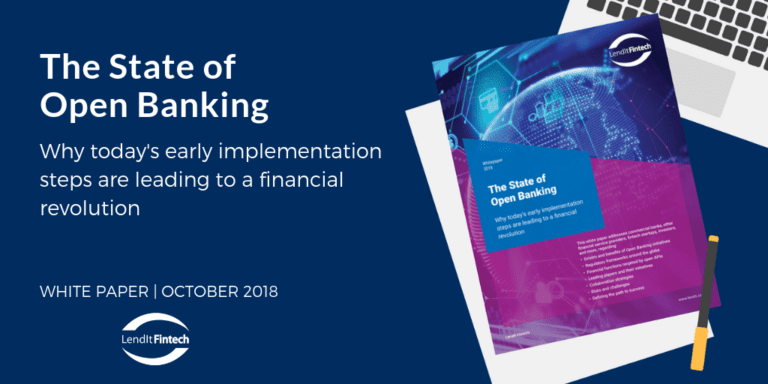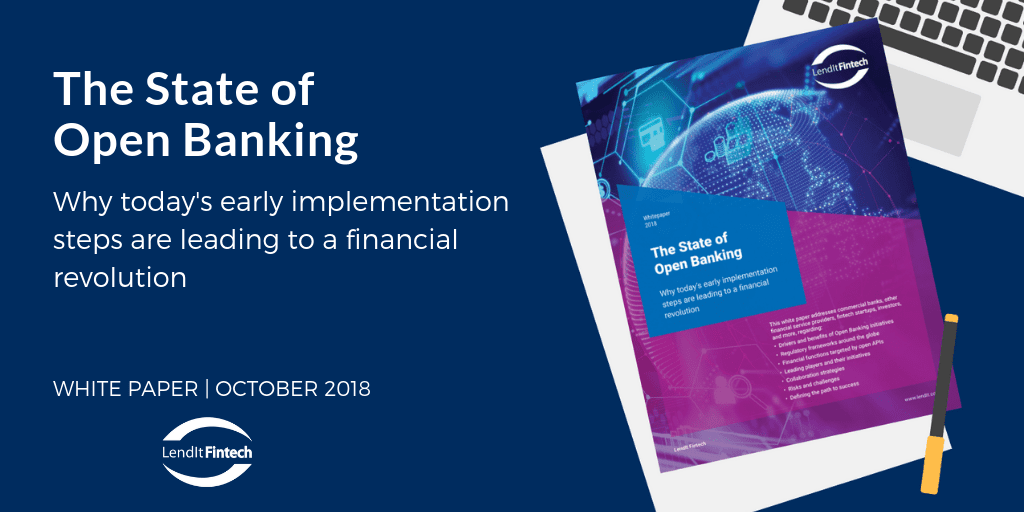Open Banking has been one of the most talked about topics in fintech over the past couple of years. In a new LendIt Fintech report we wanted to explore where open banking stands today and what the key issues are for banks, fintechs and service providers.
The report covers seven key areas of open banking: drivers and benefits of open banking initiatives, regulatory frameworks around the globe, financial functions targeted by open APIs, leading open banking players and their initiatives, collaboration strategies, risks and challenges and defining the path to success.
The push for open banking will help open the financial system for more competition and allow for consumers & small businesses to have a greater selection of choices. There are benefits for all the different parties as technology has enabled the sharing of information in a safe, more efficient way.
The term open banking was really started in the UK and Europe, who have some of the most progressive regulators in the world when it comes to financial services innovation. Their lead has helped to push regulatory bodies across the world to explore open banking and how financial information can be shared more freely. There is no defined regulation in other parts of the globe yet, though places like the U.S. have started pilot programs for banks and fintechs to better collaborate on data sharing.
Open APIs have made all of this possible, this emerging technology has helped push the market to seamlessly share information across different parties. Initially, open APIs were concentrated on account data sharing and payments, though recently you have seen lending, investments and insurance become more standard as the adoption of APIs increases.
Banks were not initially jumping at the opportunity to open their systems so service providers or fintech firms can gain access to information they deemed a competitive advantage. They worked hard to delay implementation and adjust the standards to their benefit. Since open banking started they have realized there is a lot of potential in this new wave, in particular when it comes to added revenue generators.
For fintech firms and bank technology providers open banking is the chance to really make a difference, not only for their companies but also for the consumer as a whole. This has started to remove the stranglehold that banks held on the financial system. Customers can now be in control of their data and they can freely port their information into different platforms. There are four opportunities the paper identifies; improved customer experience, extending value propositions through partnerships, optimizing distribution models and focusing on digital channels of interaction and banking as a service is now a viable strategic option for financial institutions.
The shift does not come without risk, as the paper points out there are numerous risks and challenges. Cybersecurity is key among them, since most of our financial lives are now digital this opens us up to bad actors. With so many parties involved the risk of data exposure is increased and who will be responsible when a breach occurs is a question regulators around the globe are struggling to answer.
There are ways to protect your data and your company. We recommend strong security frameworks, transaction risk analysis, requesting an independent security audit, choose the right authentication models and protecting the communication channel.
Open banking is here to stay and that is a good thing for consumers and small businesses alike. Creating a more open, transparent and safe financial system will offer more benefits than risks. This new way of doing business is only just beginning, there are important early lessons and a lot more work to be done.
Please join us at LendIt Fintech Europe 2018 where you will hear more about open banking, blockchain, AI & data analytics, credit risk & identity and lending innovation.



